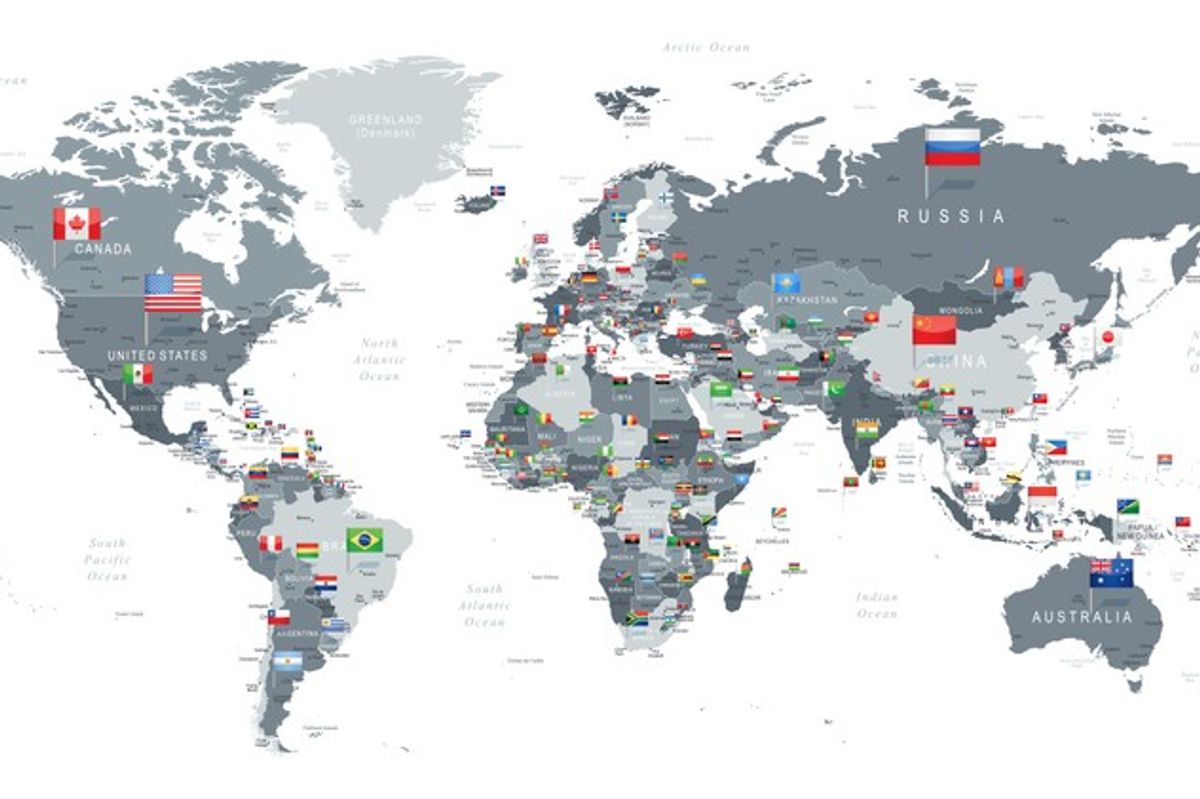Scottish First Minister Nicola Sturgeon has been vocal about her desire to call a second referendum on Scotland’s independence from the United Kingdom. The devolved government of Northern Ireland, on the other hand, was relatively quiet until earlier this month, when nationalist party Sinn Fein called for an independence referendum “as soon as possible.”
“Brexit will be a disaster for the economy, and a disaster for the people of Ireland,” Michelle O’Neill, Sinn Fein’s new leader, said. Just over half of Northern Irish voters backed staying in the EU in the Brexit referendum.
“A referendum on Irish unity has to happen as soon as possible,” O’Neill said. If Northern Ireland rejoins the Republic of Ireland, it would remain in the EU, since Ireland is already an EU member.
In a leaked ministerial letter, Britain’s Brexit Secretary David Davis wrote, “If a majority of the people of Northern Ireland were ever to vote to become part of a united Ireland the UK Government will honour its commitment to enable that to happen.” He added that “Northern Ireland would be in a position of becoming part of an existing EU member state, rather than seeking to join the EU as a new independent state.”
On the other hand, a newly independent Northern Ireland acting as an isolated entity would have to apply for EU membership from scratch, as Scotland would.
Momentum for a referendum could accelerate. In a March 15 parliamentary election, Northern Ireland’s unionist party lost its majority, placing Sinn Fein just one seat behind them.
The Cipher Brief’s Kaitlin Lavinder asked resident fellow at the American Enterprise Institute Desmond Lachman about the likelihood of a Northern Ireland vote on independence.
The Cipher Brief: Why are there calls in Northern Ireland for a referendum on independence from Britain?
Desmond Lachman: The reasons for the call for a referendum in Northern Ireland are similar to those in Scotland. In the Brexit referendum last June, around 55 percent of Northern Ireland voted to remain in the European Union. Now that the UK is headed for a hard Brexit, with the possibility of reinstated borders between Northern Ireland and the Republic of Ireland, there are those in Northern Ireland who would vote to leave the UK and stay in Europe.
TCB: How likely is it that a referendum would actually be held – that is, how much momentum is nationalist party Sinn Fein, which supports a referendum, gaining? Are other political parties in Northern Ireland now supporting a referendum?
DL: I would somehow doubt that a referendum will be held. It would require the polls to show that a majority wanted a referendum. Prior to the Brexit vote last summer, a majority of the (largely Protestant) population in Northern Ireland wanted to stay in the UK.
TCB: What challenges would a referendum present to the UK, as Theresa May’s government continues Brexit negotiations? Or do you think a referendum wouldn’t be called until after the UK has already left the EU, when Northern Ireland may begin feeling some of the consequences of not being in the union?
DL: In Scotland, Theresa May has made clear that if a referendum were to take place, it would not do so before the Brexit negotiations were completed by March 2019 at the earliest. The same would almost certainly apply to a Northern Ireland referendum.
If momentum does gather pace for a Northern Ireland referendum, this pressure will be a major headache for May. Coming on top of the Scottish desire for a referendum, it would underline the cost of Brexit.
TCB: What are the legal obstacles to an independence referendum?
DL: As part of the Good Friday Accord, the UK agreed to allow Northern Ireland to have a referendum on continued membership in the UK if the polls showed there was support for such a referendum. So, if there’s support, it can be held.
TCB: Would an independent Northern Ireland be granted membership to the EU? What could stand in the way?
DL: Unlike Scotland, which would have to apply for EU membership like a new country, Northern Ireland could join the Republic of Ireland, which is an existing member of Europe. As such, it would be a lot easier for Northern Ireland than for Scotland to leave the UK, yet remain in Europe.












